Approaches to Making Art in the Early Childhood Classroom:
Exploring Line, Shape, and Color
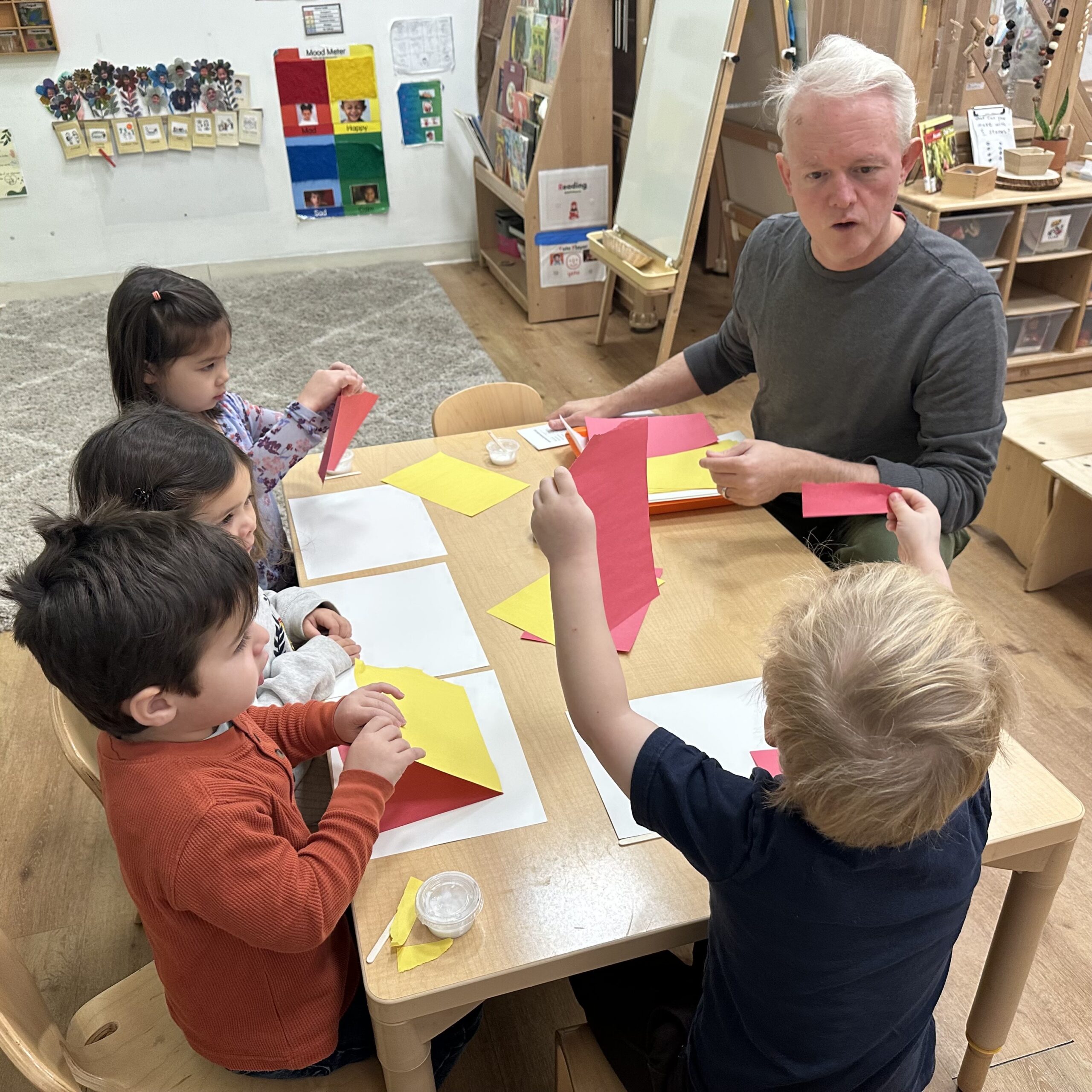
Approaches to Making Art in the Early Childhood Classroom: Exploring Line, Shape, and Color provides educators with effective strategies to engage young children in painting and collage activities. These process-based approaches emphasize inquiry, exploration, and discovery, supporting critical developmental skills while giving teachers the tools to nurture creativity in their classrooms.
How Process-Based Art Making Supports Early Childhood Development:
- Fosters collaboration
- Develops fine and gross motor skills
- Builds self-confidence, independence, and perseverance
- Encourages communication and language development
I feel so fortunate to have the opportunity to engage in this work. It’s going to make me a more intentional teacher, not just in art, but in all areas of the classroom.”
– Glenn Peters, Lead Pre-K for All Teacher at Manhattan Schoolhouse

Meet Glenn Peters
Name: Glenn Peters
Role: Lead Pre-K for All Teacher at Manhattan Schoolhouse
Context: Glenn previously collaborated with a Studio in a School teaching artist and sought resources to continue implementing meaningful art lessons in his classroom.
Course Engagement
Glenn eagerly implemented new strategies and shared thoughtful reflections on how each lesson played out with his students.

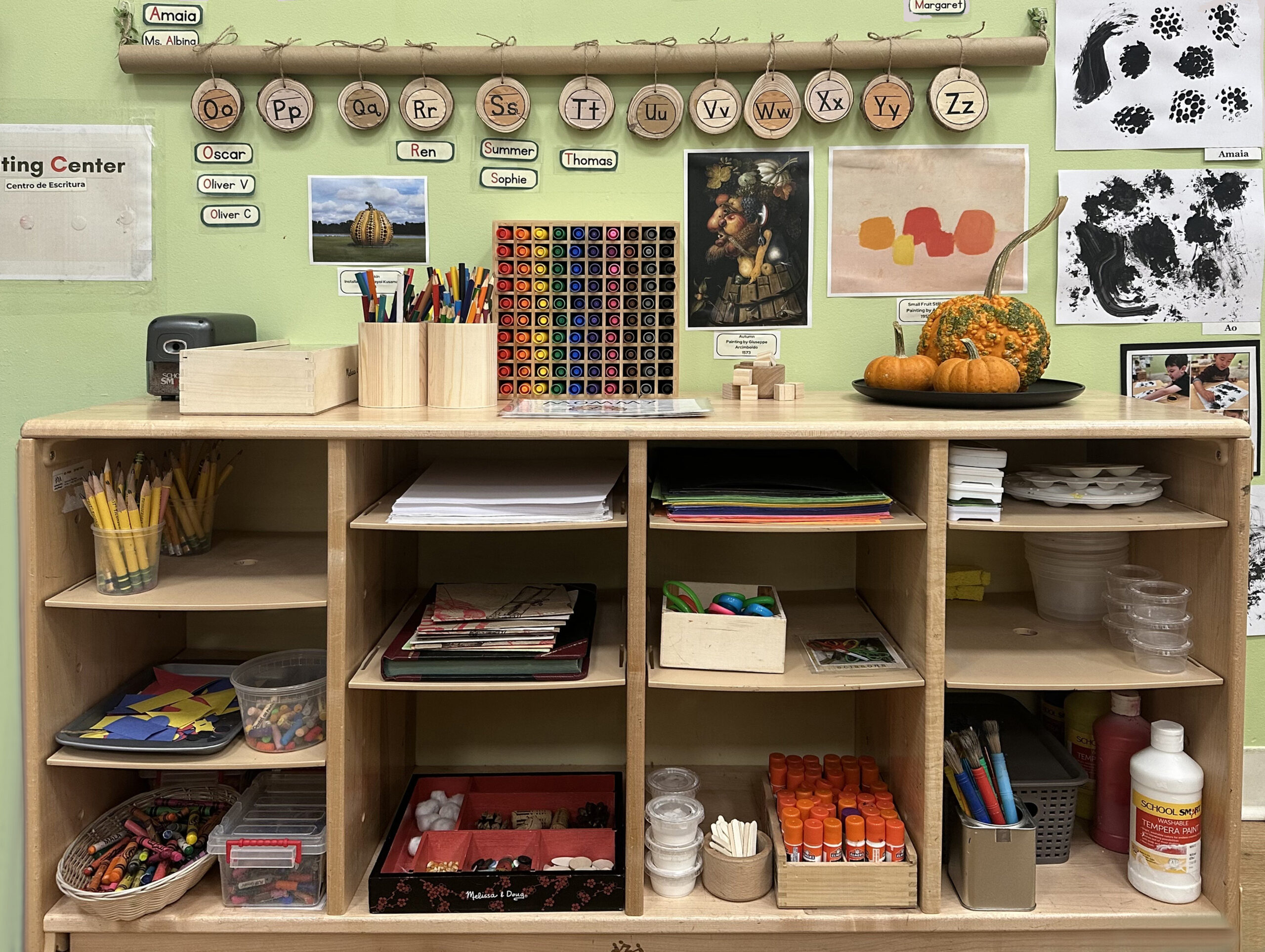
Organizing a Streamlined Art Center
Glenn applied strategies to organize an independently accessible Art Center:
- Labeled containers with text and photos.
- Pre-portioned clay in clear, individual containers.
- Glue in soufflé cups with craft sticks.
- Pre-cut shapes for collage work.
- Introduced inspiring objects and artworks.
- Removed materials like googly eyes to focus on basic skills first.
He also planned to revisit Art Center procedures and gradually introduce new elements.
When I see a child self-select paints and brushes, use the gluing rhyme when applying glue to collage paper, or thoughtfully commenting on their peers’ work, I am witnessing the foundational power of what Studio in a School offers teachers and students alike.”
– Glenn Peters, Lead Pre-K for All Teacher at Manhattan Schoolhouse
Three-Part Lesson in Action
Glenn implemented the Three-Part Lesson model, successfully guiding children through:

Engagement
Demonstrating paper tearing, brush use, and different approaches to art making.
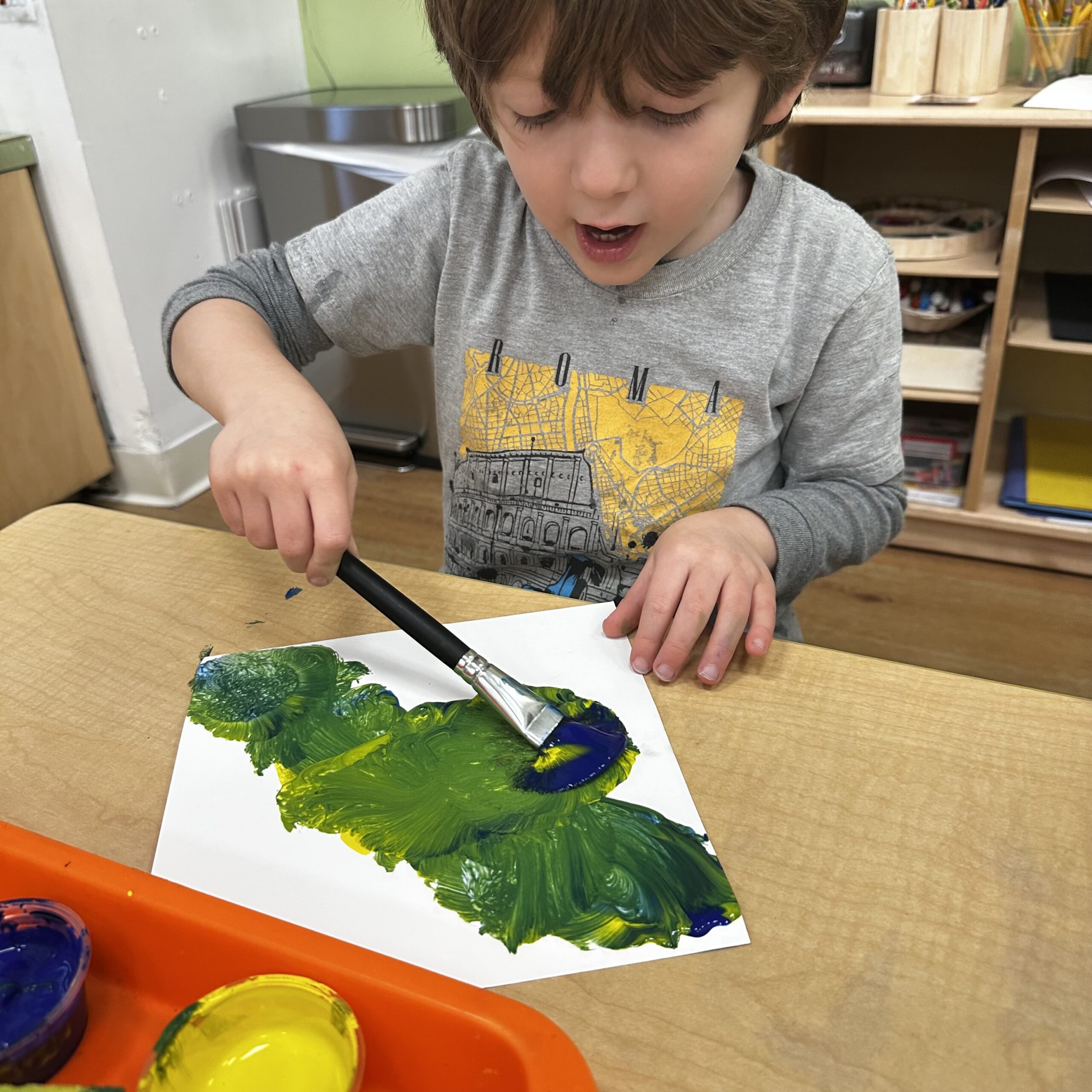
Work Time
Using descriptive language to encourage exploration and engagement.
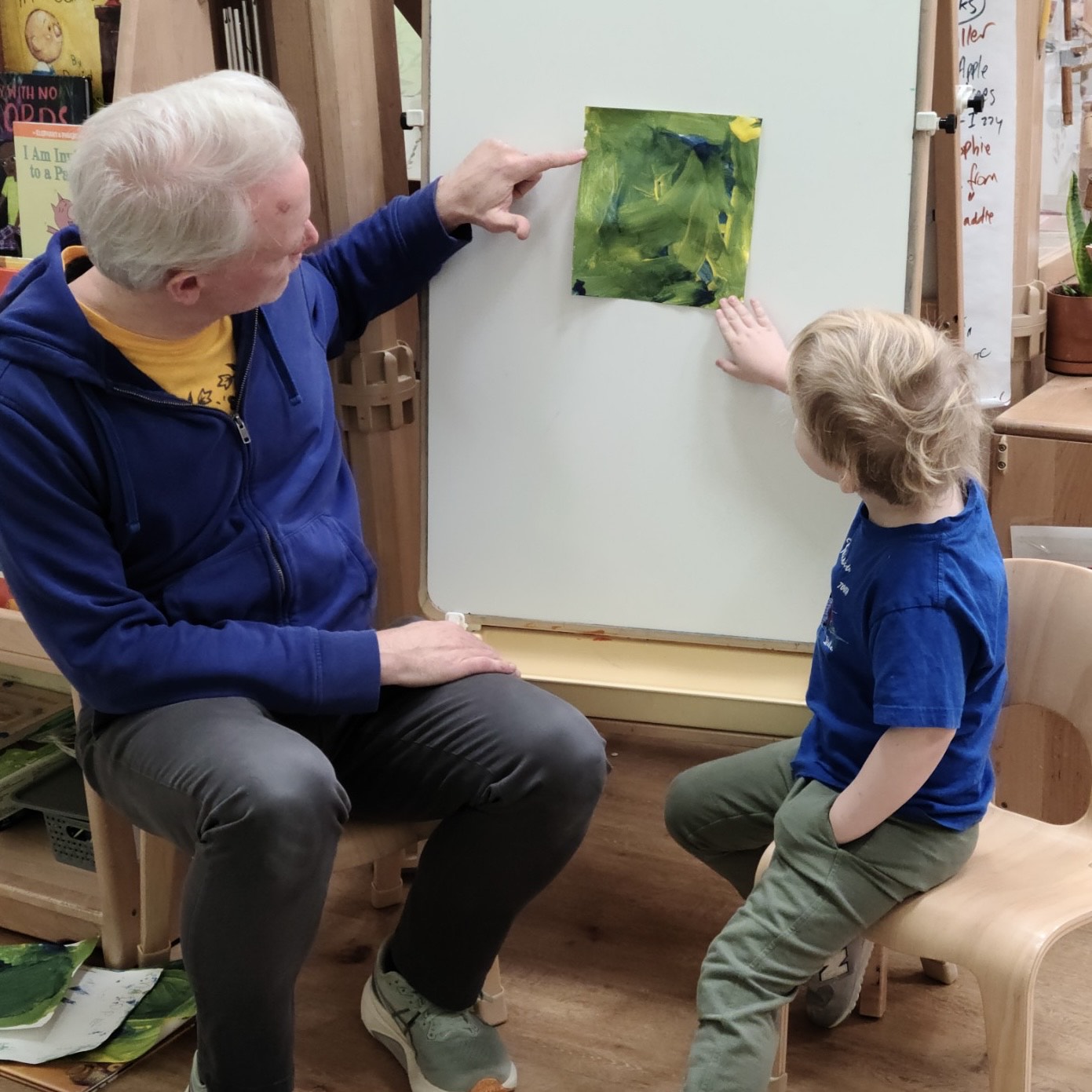
Reflection
Implement the Three-Part Lesson (Engagement, Work Time, Reflection) for art making activities.
I plan to use the three-part lesson to talk about much more than art. After I have modeled noticing, wondering, exploring, and making for the children, it’s such a joy to see the children take these stances on for themselves.”
– Glenn Peters, Lead Pre-K for All Teacher at Manhattan Schoolhouse
Courses and Workshops for Educators
Our professional development courses and workshops are led by teams of professional artists and art educators. Whether in-person or online, you’ll join a community of passionate educators, exchanging ideas and discovering fresh approaches. You’ll leave inspired and ready to implement the lessons and strategies you learn in your own classroom!

Work Time Documentation
Glenn provided descriptive feedback and raised reflective questions when talking to children about their work.
Edward: This one is gonna go here… and this one’s gonna be right here… I don’t wanna arrange anymore.
Mr. Glenn: Your picture changed when you arranged it. Do you like it better now?
Student Case Study
After participating in a lesson on exploring marks and lines, C, a child with emerging fine motor and language skills, stayed engaged at the art table for the entire center time. For the first time, he shared longer, more complex sentences, revealing a new level of engagement and confidence.
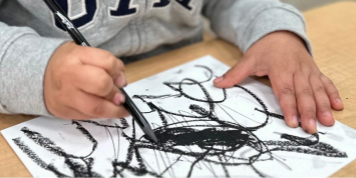
Like many of my colleagues, I am often pressed for time. I find myself searching for art activities on sites like Pinterest or Teachers Pay Teachers. I am so happy to have access to the tried and true Studio in a School curriculum. I don’t have to have an art background to provide meaningful, skill-building experiences to my students.”
– Glenn Peters, Lead Pre-K for All Teacher at Manhattan Schoolhouse
Key Takeaways
- Process-based art making nurtures creativity and engagement.
- Organized Art Centers encourage children to work independently.
- The Three-Part Lesson supports inquiry, exploration, and discovery.
- Course concepts extend beyond art, strengthening learning foundations in all areas.
Join Us for Winter 2025!
Course Dates: January 15-March 26, 2025.
